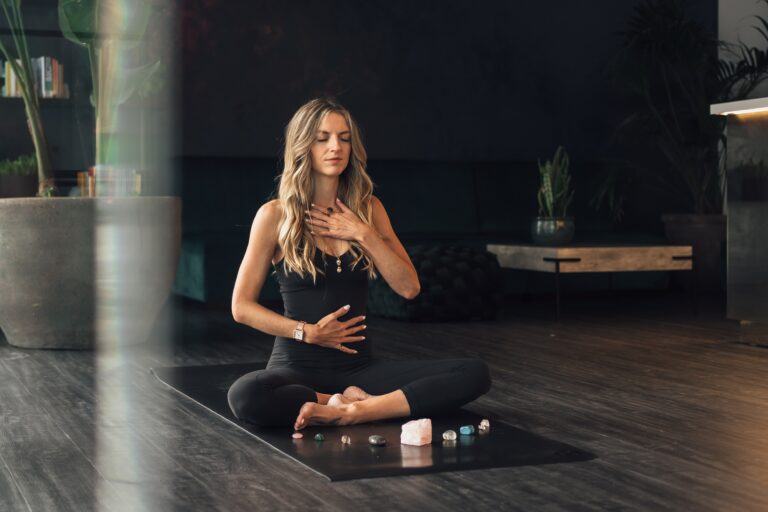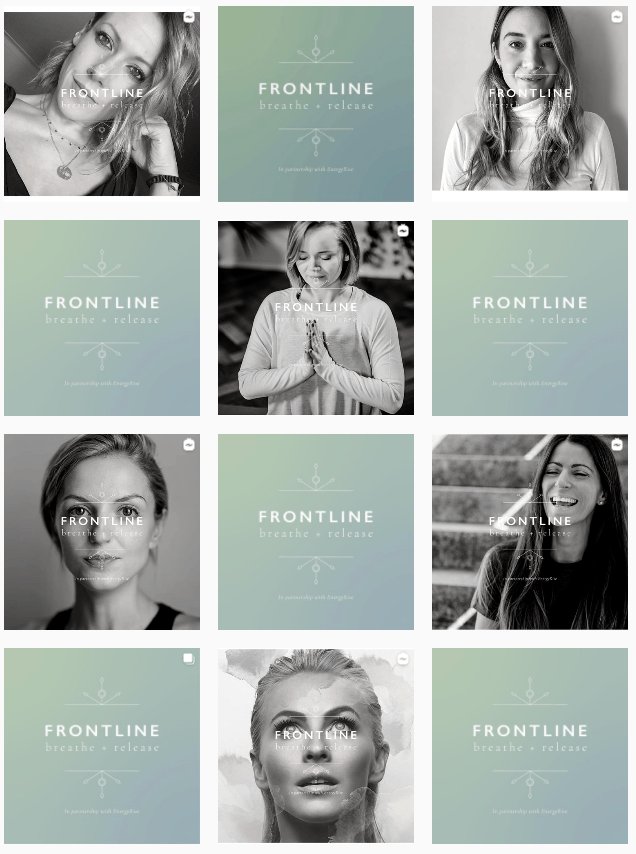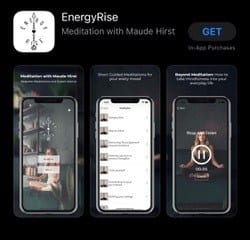
Frontline Breathe & Release is a FREE Instagram wellness resource created by Maude Hirst, Wanderlust TV teacher and the founder of EnergyRise, dedicated to supporting frontline workers who are stretched to their mental and physical limits by the on-going pandemic. It is a collection of 10-minute meditations, movement classes and breathing workshops from the most celebrated experts in the wellness industry to help our key workers release the weight of months of stress and unrelenting work-loads. Experts including world-renowned Wim Hof (The Ice Man), Julianne Hough, Dr John Amaral and leading UK experts Richie Bostock (The Breath Guy) and Hannah Barrett (yoga).
Could you tell us a bit more about the Frontline Breathe & Release – was there a particular event that inspired you to start this initiative?
Yes, I was speaking to some friends of mine who work for the NHS and ambulance service and they were explaining the shocking scenes they were dealing with on a day to day basis during this pandemic. Being the wonderful people they are, they were not then asking for any support for their own mental health for dealing with this stuff. Often resulting in them leaving work and having panic attacks when they got home.
Knowing the impact meditation, breathing and yoga can have for helping with panic, stress and trauma I felt a need to create a space that the frontline could access to get the support they might need without having to ask for it. So I created this free Instagram resource offering short practices guided by leading practitioners from around the globe.
 Is this an international community of teachers who have contributed to the project?
Is this an international community of teachers who have contributed to the project?
Yes, as the pandemic is global, it was really important to get international teachers to come on to the platform to allow for frontline workers everywhere to hear about the platform and gain access to the amazing sessions. The platform is still growing and evolving with new teachers and practices to offer as much support as we can.
Would you say that when working with frontline workers, there is a different approach to class curation? What does one need to keep in mind when proposing a class to the frontline work communities?
From speaking to lots of people on the frontline the one thing that is very obvious is how hard they are working and how little time they have for self-care, therefore these sessions needed to be short so they could use them even on shift when times were stressful.
Have you found that reaching frontline workers is more difficult due to the nature of their work and also the fact that they might not be aware that help is out there for them?
It has been a challenge partly because they are working so hard and such long hours. The nature of being a frontline worker generally means they are real caregivers and I have found that many of them are not thinking very much about looking after their own wellbeing as much as helping others. My hope is that this resource will be a place they can come to for short periods of time for themselves and also as a thank you from all of us for the tireless and selfless work that they are doing.
What has been the most popular practice amongst the frontline workers?
Meditation, Breathwork and energy work have been the most popular choices. Bringing some much-needed calm.

What has been your highlight so far growing Frontline Breathe & Release?
Offering something I feel can support those who are supporting us through these unprecedented times. When I hear from nurses and doctors who have found the platform comforting and helpful, it makes me realise how important it is to support each other at the moment.
Do you envision Frontline Breathe & Release transitioning into real-life experiences, gatherings, or events as soon as we’re safe to do so?
Yes, I would love to hold some real-life experiences for frontline workers but I am also aware that the hours that our frontline workers work makes it really important to have online access. So I hope to continue to grow the Instagram Platform, offering as many resources and as much support as possible while the pandemic continues and into the aftermath when it will be essential to focus on mental wellbeing.
 Is this an international community of teachers who have contributed to the project?
Is this an international community of teachers who have contributed to the project?